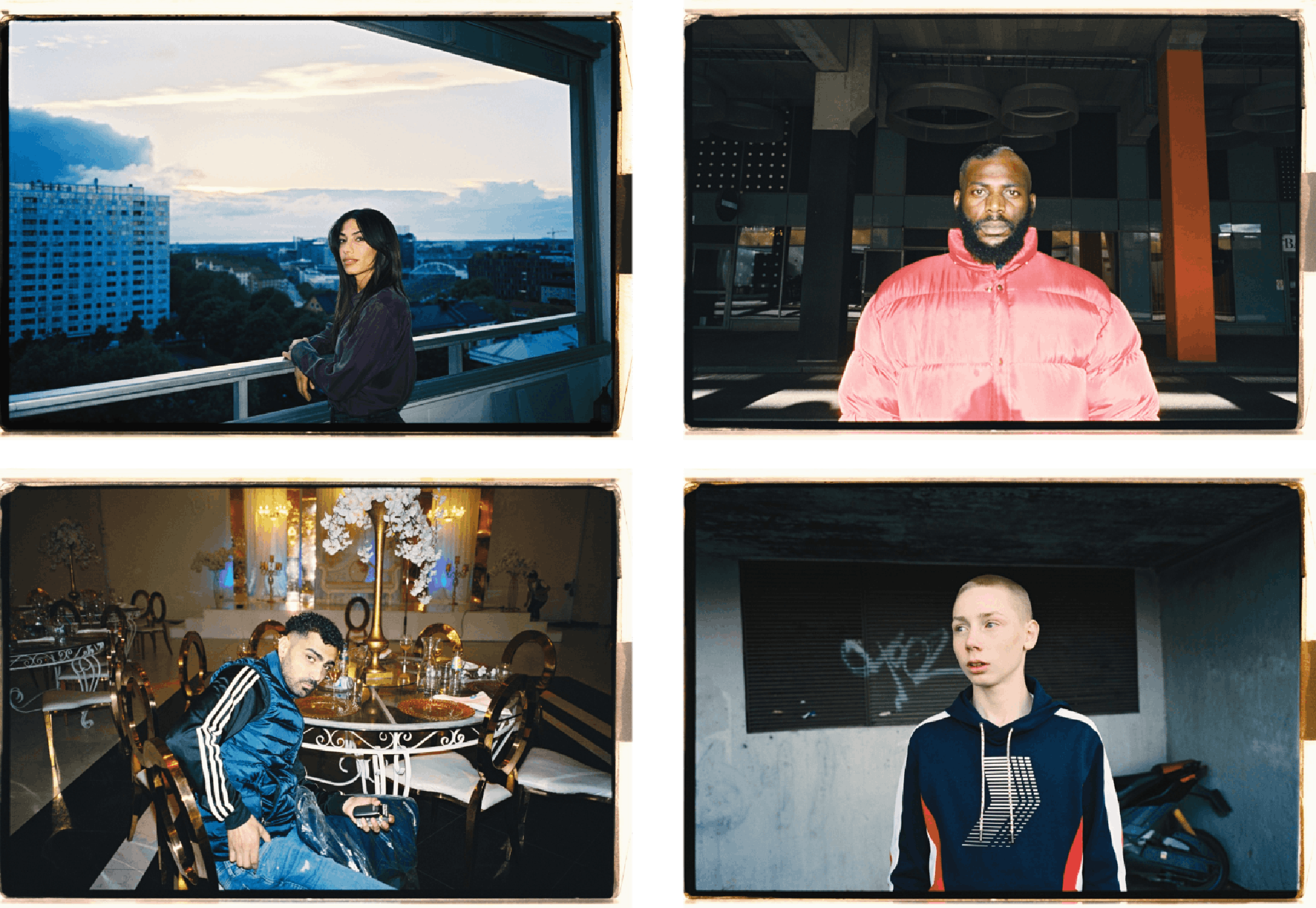How far would you go to get what you want? For Leya (Evin Ahmad), the protagonist in the Swedish original series Snabba Cash (Easy Money), the answer comes with dangerous consequences. Based on the novels by Jens Lapidus (who executive-produces the show) and a subsequent film series of the same title, the thriller follows Leya, an ambitious single mother who, in her effort to launch a business, becomes entangled in the seedy, gang-run streets of Stockholm. Along the way she gets involved with a host of complicated characters, including the wedding-singer-cum-hit-man Salim (Alexander Abdallah) and the gangster Ravy (Dada Fungula Bozela). Series creators Jesper Ganslandt and Oskar Söderlund usher the themes of the books — published between 2006 and 2011 — into a contemporary setting, juxtaposing Stockholm’s violent criminal underworld with the glimmering high-rises of the startup market. It becomes clear as Leya makes her way through both of these worlds that they have more in common than not.
Ganslandt and Söderlund joined Ahmad and co-stars Abdallah and Bozela to talk about bringing a new Snabba Cash to the small screen.
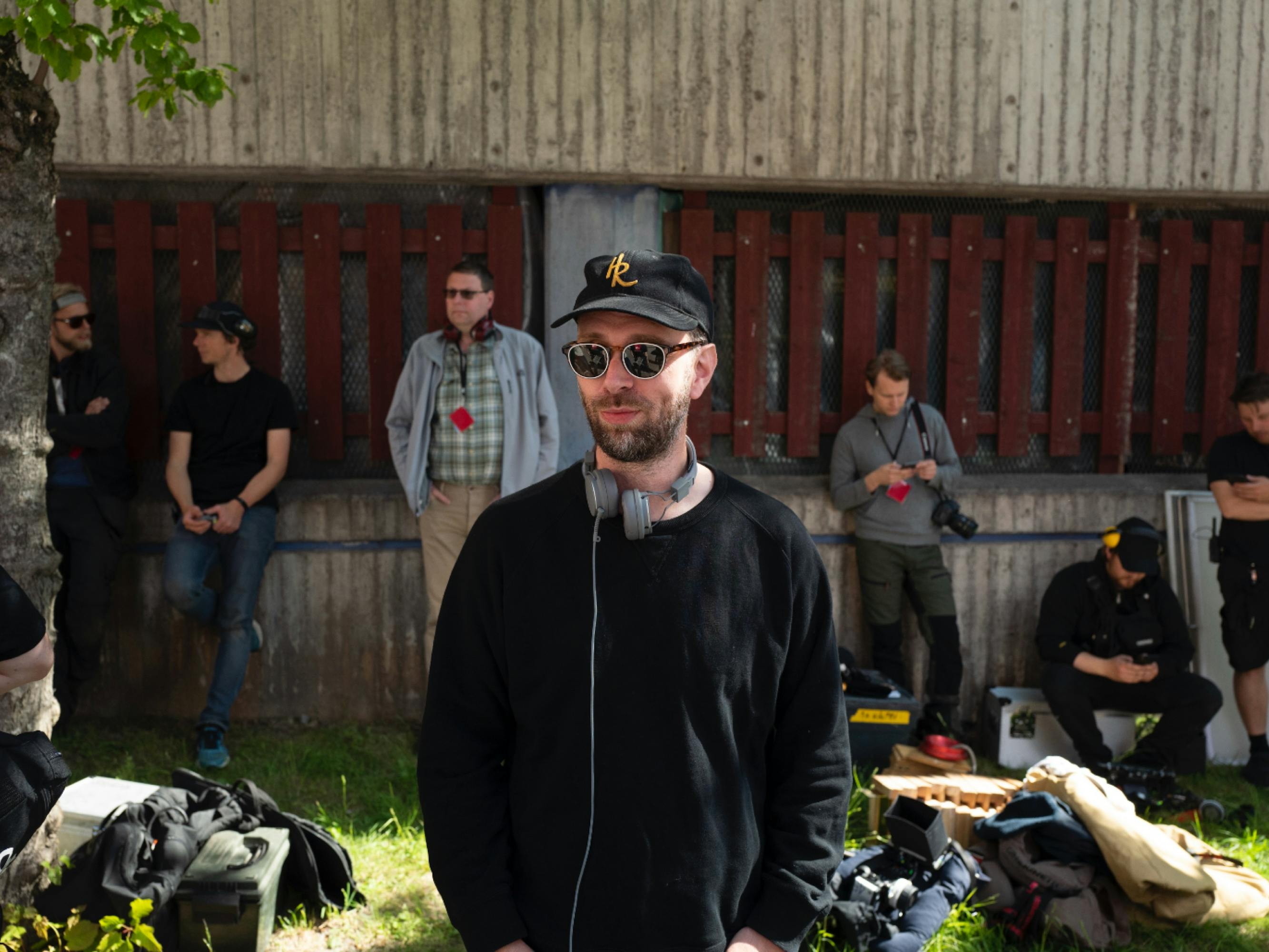
Co-creator and director Jesper Ganslandt on the set of Snabba Cash
Jesper Ganslandt (co-creator, director): Oskar, you never told me how you heard that they were planning on making a reboot of the films and books.
Oskar Söderlund (co-creator, head writer): Our producer, Nicklas Wikström Nicastro, reached out and asked me to create a new interpretation of the old Snabba Cash. The first thing I was thinking about was: What does Snabba Cash look like today? But also: What was Snabba Cash 10 years ago? What can we take? What can we add to the story? Questions like that. When the first book and film were released, the story was very contemporary, but how do we make it contemporary for today’s society?
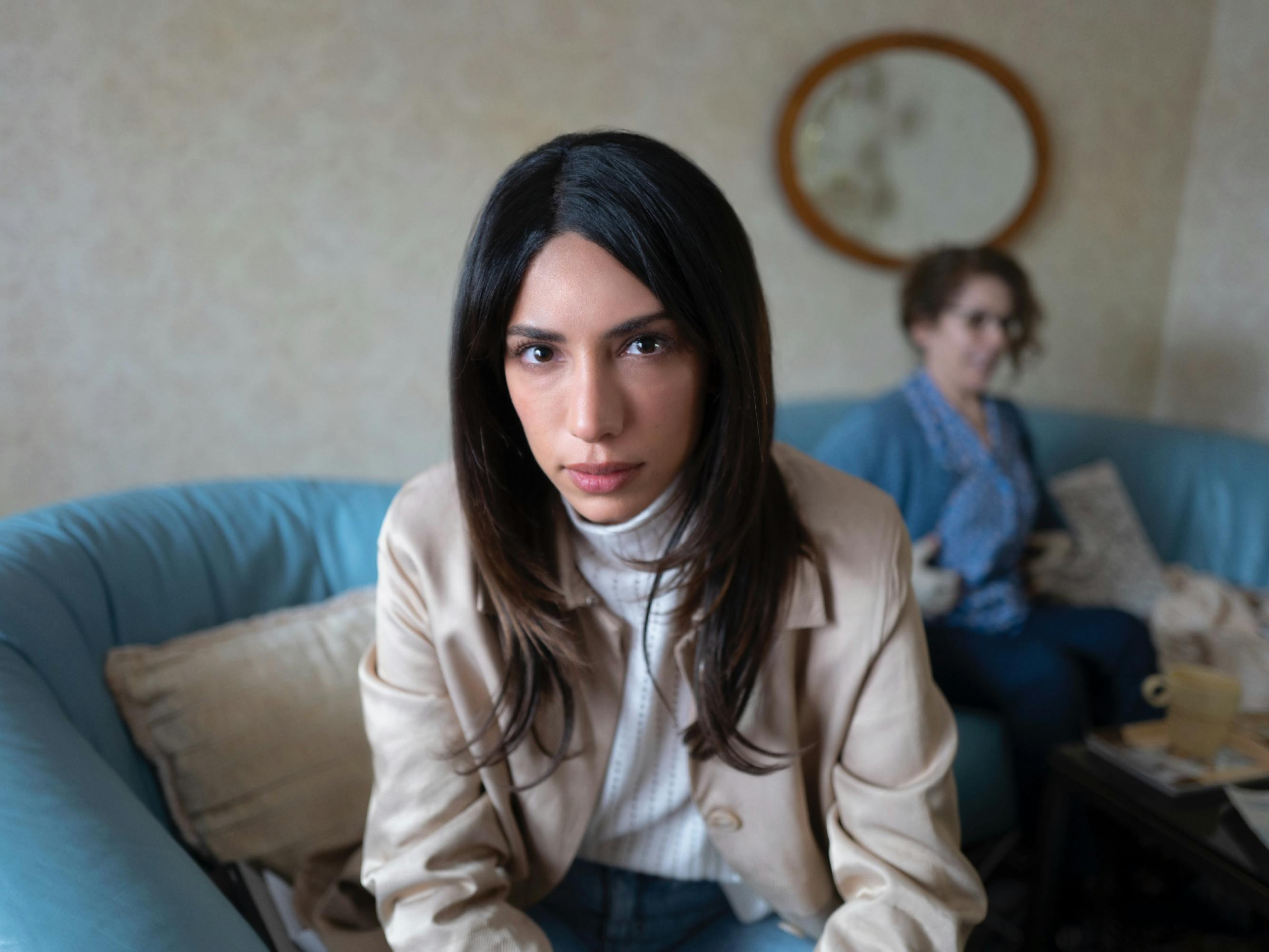
Evin Ahmad (Leya)
Evin Ahmad (Leya): Was it scary? The original Snabba Cash became an international hit, and a lot of people involved ended up in Hollywood. Was it scary to pick up a project that a lot of people had seen and had opinions about?
Ganslandt: I don’t think it was scary. The original movie is really good, but it felt like there was more to tell, especially in a world where people are willing to do anything to achieve success. That’s a tragic story that could be told again. I didn’t think we had to distance ourselves that much from the original trilogy. We just had to keep the overarching theme.
Söderlund: We needed to figure out what our version of Snabba Cash was. I think we’ve done that, all of us together. It’s something new.
It’s the first time I feel free as an actress.
Evin Ahmad
Alexander Abdallah (Salim): I know how much you guys included us in the creative process. I’d love to hear how you worked during the research process. As a director, I don’t think you need to have your own specific experiences to tell an authentic story. You can be collaborative and open up the creative process so that more people can be involved. That’s something I think you did, Jesper.
Ganslandt: I do think that the casting process was the biggest piece of research we did. We had a lot of auditions where we tried to find the right actors. We also used the auditions to figure out how the series would sound. How do the characters speak? Does this scene make sense? While the auditions were happening, Oskar kept working on the script.
Söderlund: Absolutely. When you approach it as a writer, you need to be both humble and confident that you can tell this story. The humble aspect is that you haven’t lived that life. Then it is your job as a writer to tell the story with empathy. The scripting process had a lot of readings where the actors could give input on the dialogue. As a white, 42-year-old man from Gothenburg, I don’t know how certain dialogue should be spoken, which is why we gave the actors a lot of freedom. That was actually really fun and extremely useful, as I could see how it improved the script. From a writing perspective, it was probably the most collaborative process I’ve been part of, and it has also helped to create one of the best series I’ve ever done. So that’s an important takeaway: Get everyone involved in the creative process.
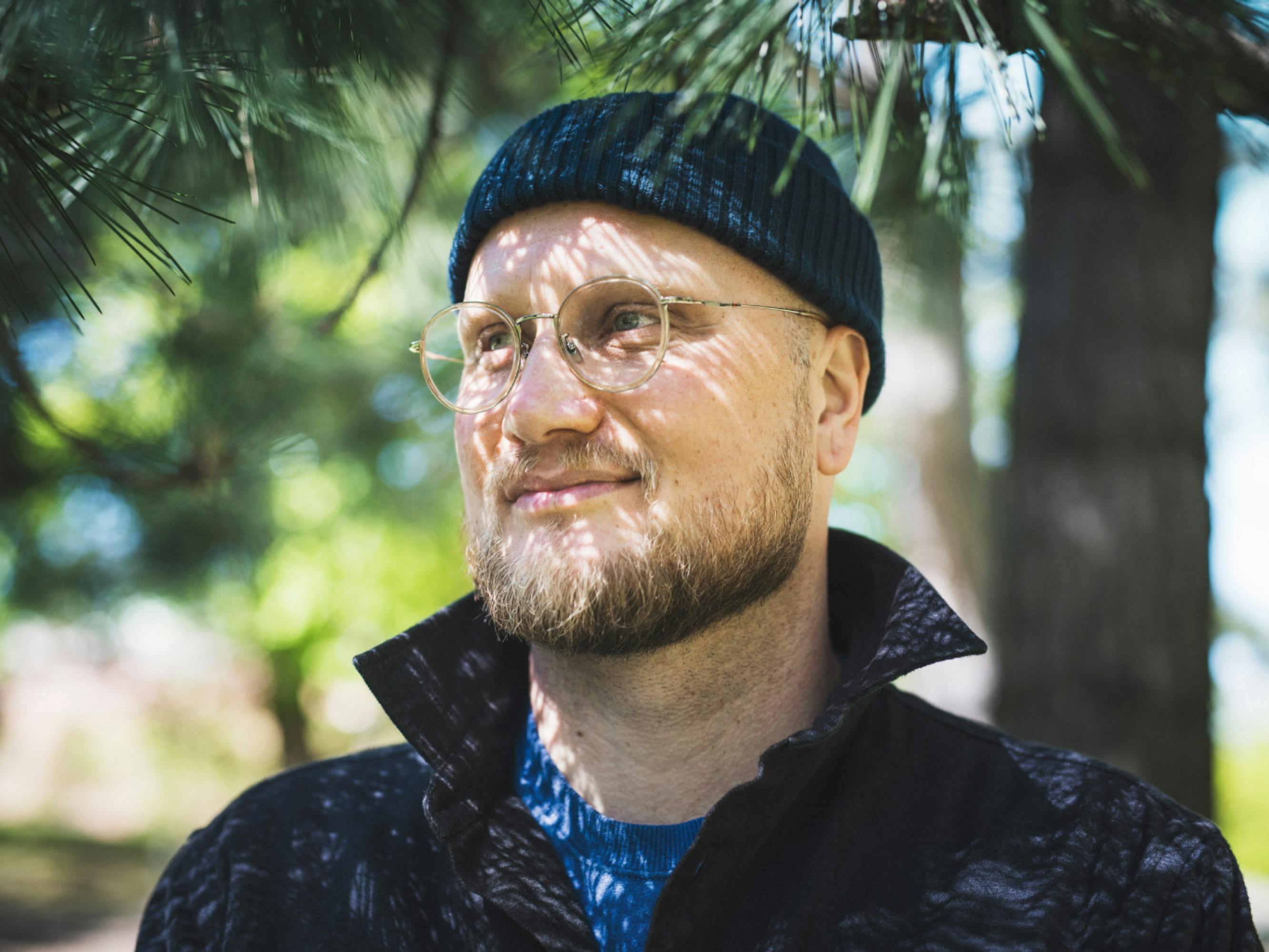
Co-creator and head writer Oskar Söderlund
Photo by Ellika Henrikson
Dada Fungula Bozela (Ravy): This was my first big project where I wasn’t in charge, but I remember you telling me, “I don’t know anything about this. You need to teach me, Dada.” That’s when I knew that this would be something really special, that you had faith in me that quickly. Ravy carries a lot and has a story to tell. At the same time, he also wants to get out. He’s got two families, and it feels like no one truly understands him. Of all the characters that Oskar has written, I do think Ravy is the only one who is completely loyal. He truly is. He doesn’t do anything if he doesn’t have to. And he looks out for the people around him. I’m so grateful that you guys trusted me and gave me the opportunity to let the art speak for itself.
Ahmad: I’m very grateful that there was this openness and willingness, that there wasn’t this pretentiousness of, “This is our show. We’re doing it our way.” Instead, it was more like, “We don’t know about that, but we do know about this.” Everyone involved could bring a toolbox and build together. For me, this has been a utopia. This idea of having a woman take the lead in Snabba Cash, how did you decide on that?
Söderlund: That’s something we knew from the start. When you’re stepping into a genre like gangster and crime drama, there’s a lot of tradition that comes with that. It makes you want to create something new and different. In the old Snabba Cash, you get to see the world from [the original male protagonist] J.W.’s perspective. It was more interesting to see it now from a young, ambitious woman’s perspective.
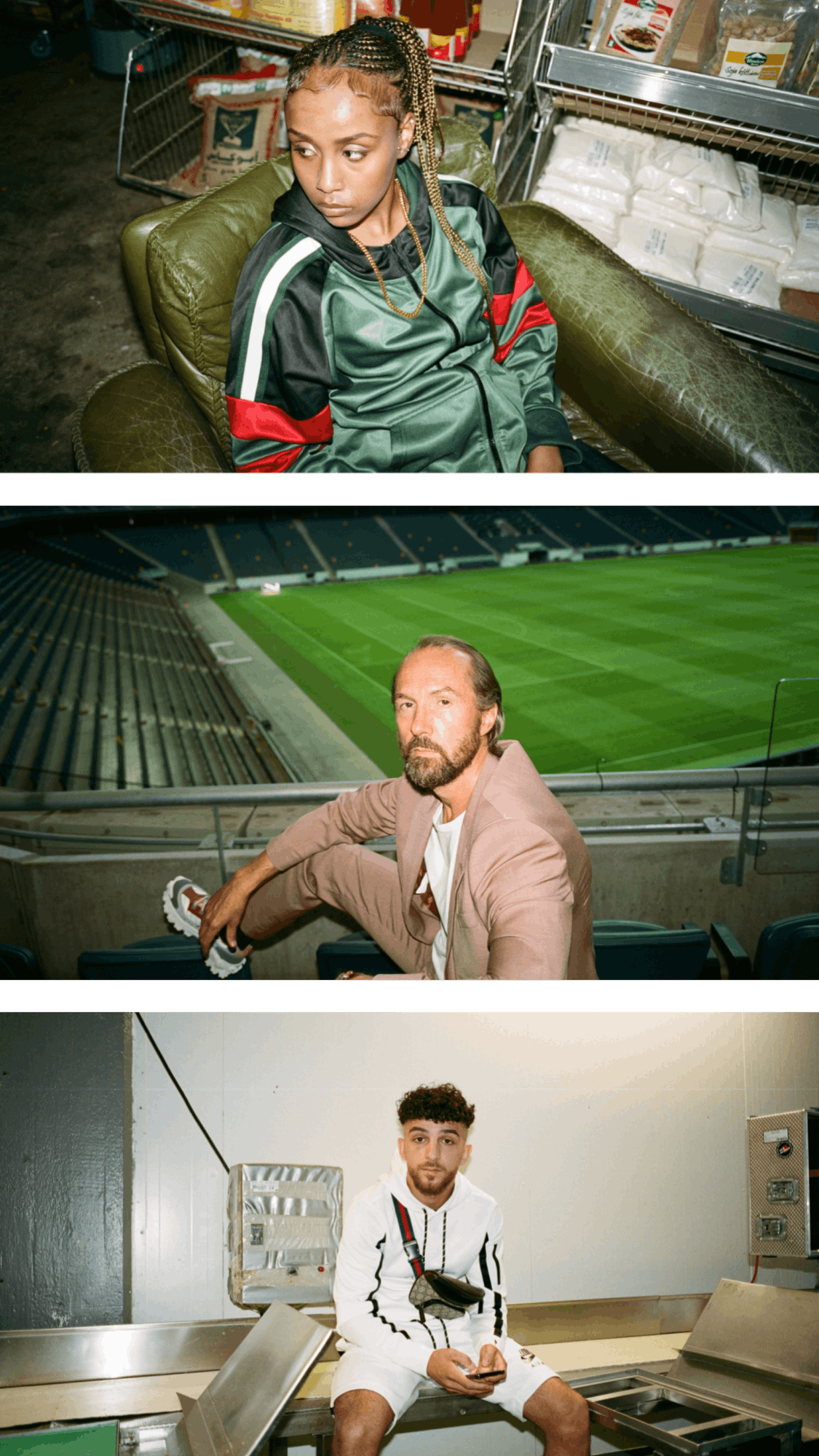
From top to bottom: Ayaan Ahmed (Nala), Olle Sarri (Tomas), Mehdi Merali (Fatma)
Ahmad: I remember you saying on our first table read, “Who is this Leya? Who is she?” As time passed, I think Leya started to emerge. She’s her own person. I’m surprised by some of the decisions she makes, but at the same time I understand her. She’s extremely desperate, and I understand her stress. It was important to me that she didn’t become a victim in the story, and that has been a bit scary, especially as an actress. Is she likable or not? We were quite clear that we’d ignore that. She should just be relatable.
It’s the first time I feel free as an actress. I feel like I found my way home with this project. These are the women I’ve grown up with, these working-class heroines. I’ve grown up with women with loads of confidence: my mom, my aunts, my cousins, all of Scorsese’s women — they are no victims. These are working-class women who are like, Get out of my way, I’m walking here! That’s something I think is really beautiful.
Söderlund: There’s a funny reference with Salim’s character. When I started writing Snabba Cash, my two daughters were obsessed with Frozen. And Salim is our Frozen story. It started as a joke.
Ganslandt: I love Frozen, so I was sold.
Söderlund: Yeah, you loved it. The story of Salim became our Frozen. The story of a heart that is frozen and slowly melts.
Abdallah: Why haven’t you mentioned this before?
Söderlund: I didn’t want it to be cheesy.
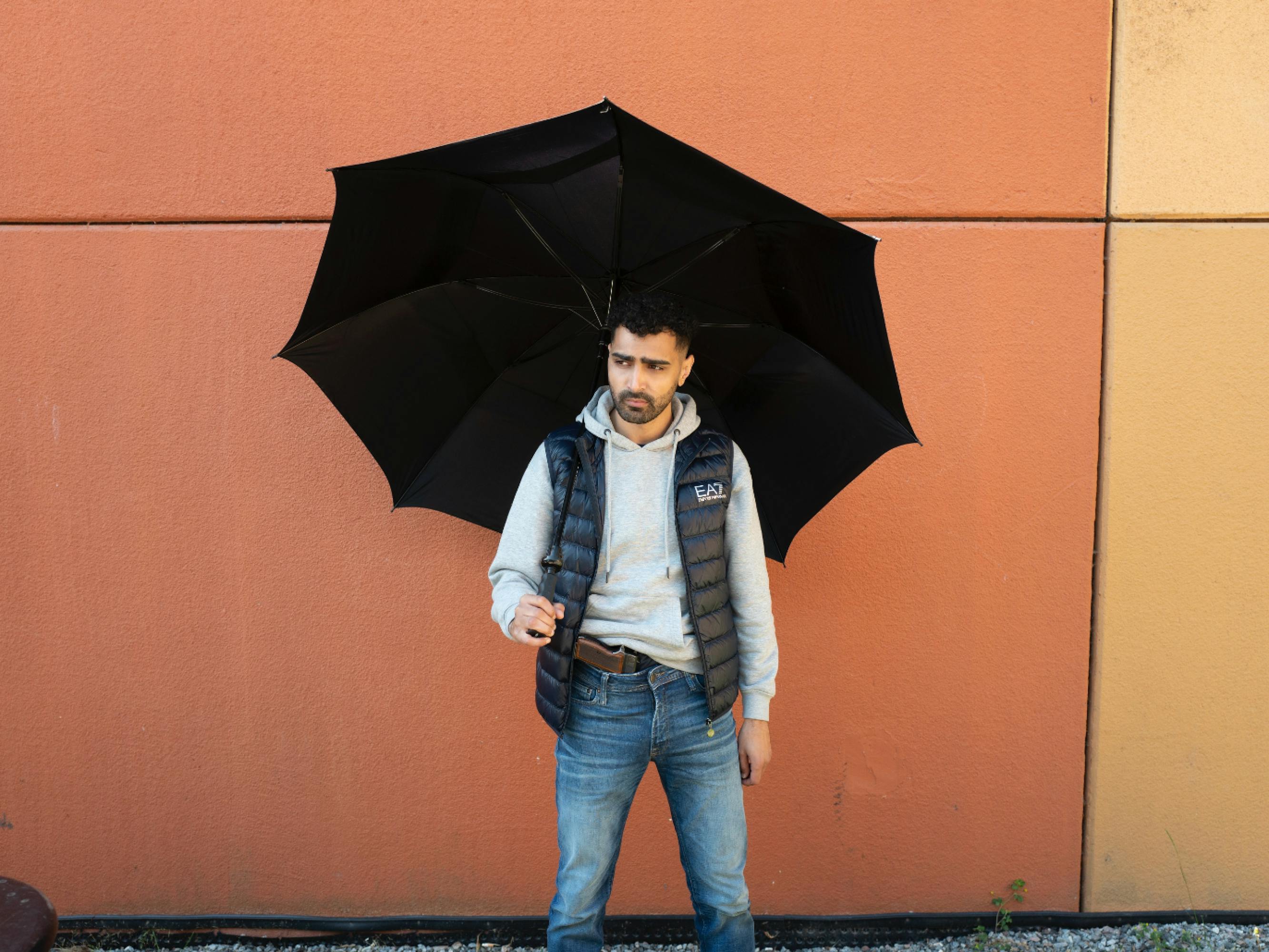
Alexander Abdallah (Salim)
Ganslandt: Alex, what do you think about the dualism of who Salim is? I mean, he’s a gangster, a hit man, and then he’s a wedding singer. How did you approach that?
Abdallah: You don’t always get roles that are that complex, and my first reaction was like, Shit there’s so much to tell here. There’s a lot of dynamism. I remember us talking and afterwards thinking, Fuck, we never explain why he’s singing. Then you said, “We don’t need to explain. He sings and that’s it.” As for the complexity, I did want to create this vulnerable guy from the suburbs because I wanted to show something different and go against the macho stereotype. I’ve got an acquaintance who told me that he robbed a guy and then went home and cried. That somehow summed up the complexity for me. Being a criminal but also being a human being.
Ahmad: What I find interesting is that we’re showing a segregated Stockholm, a segregated Sweden that we haven’t seen before. I mean, Sweden is known for Scandi noir or films from Norrland. I think it’s special that you get to see a Sweden that I personally relate to, a Stockholm that I recognize. Characters such as Salim, Ravy, and Leya, these are the characters that I’m used to seeing as objects in other Swedish productions. Here, you get to see Salim do everything, from being part of a shooting, to falling in love, to taking care of and playing with a kid. Ravy can be menacing, but he is also vulnerable and lovable. I think it’s unique that you can follow the journey of these characters.
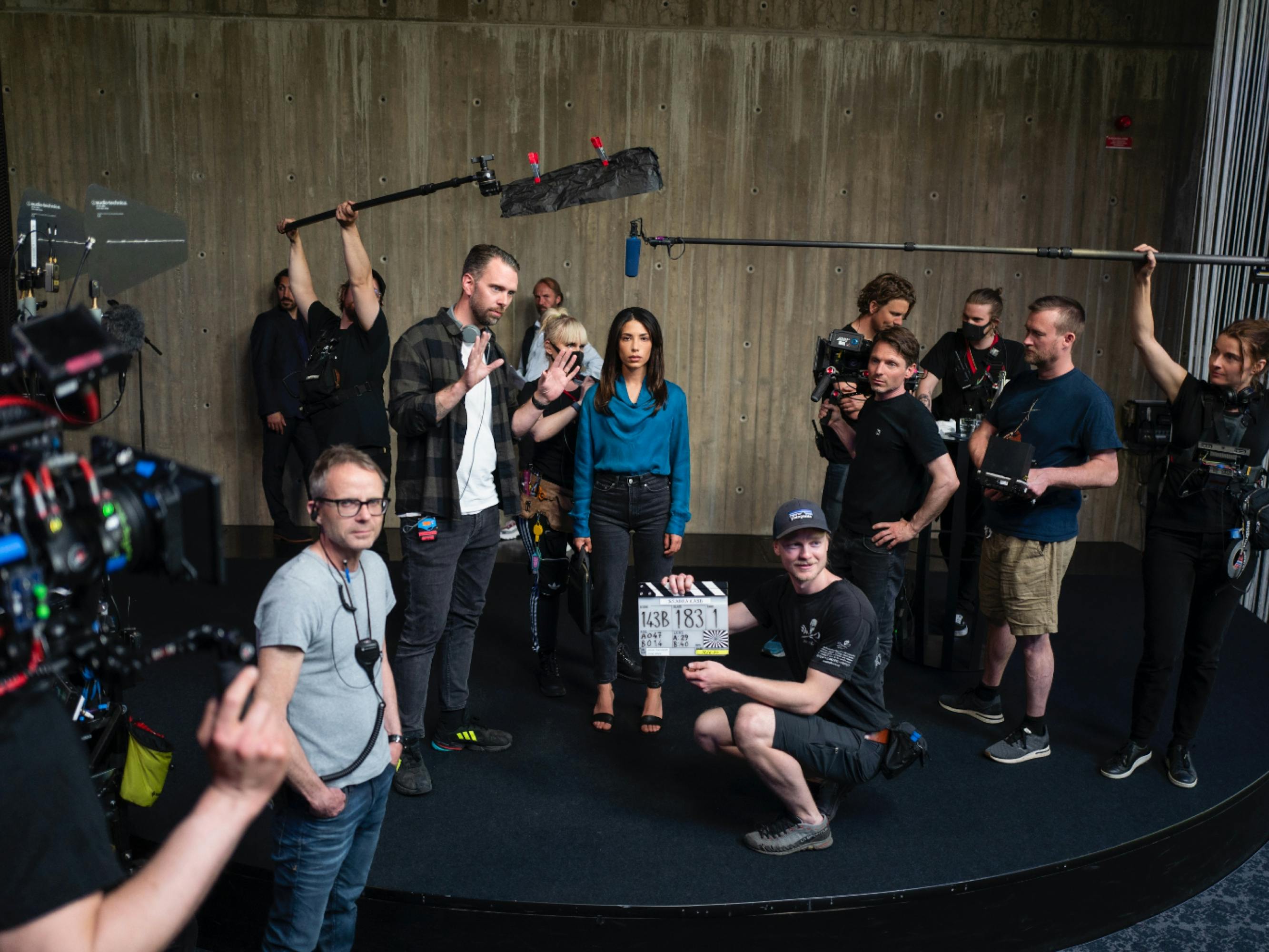
The cast and crew on the set of Snabba Cash
